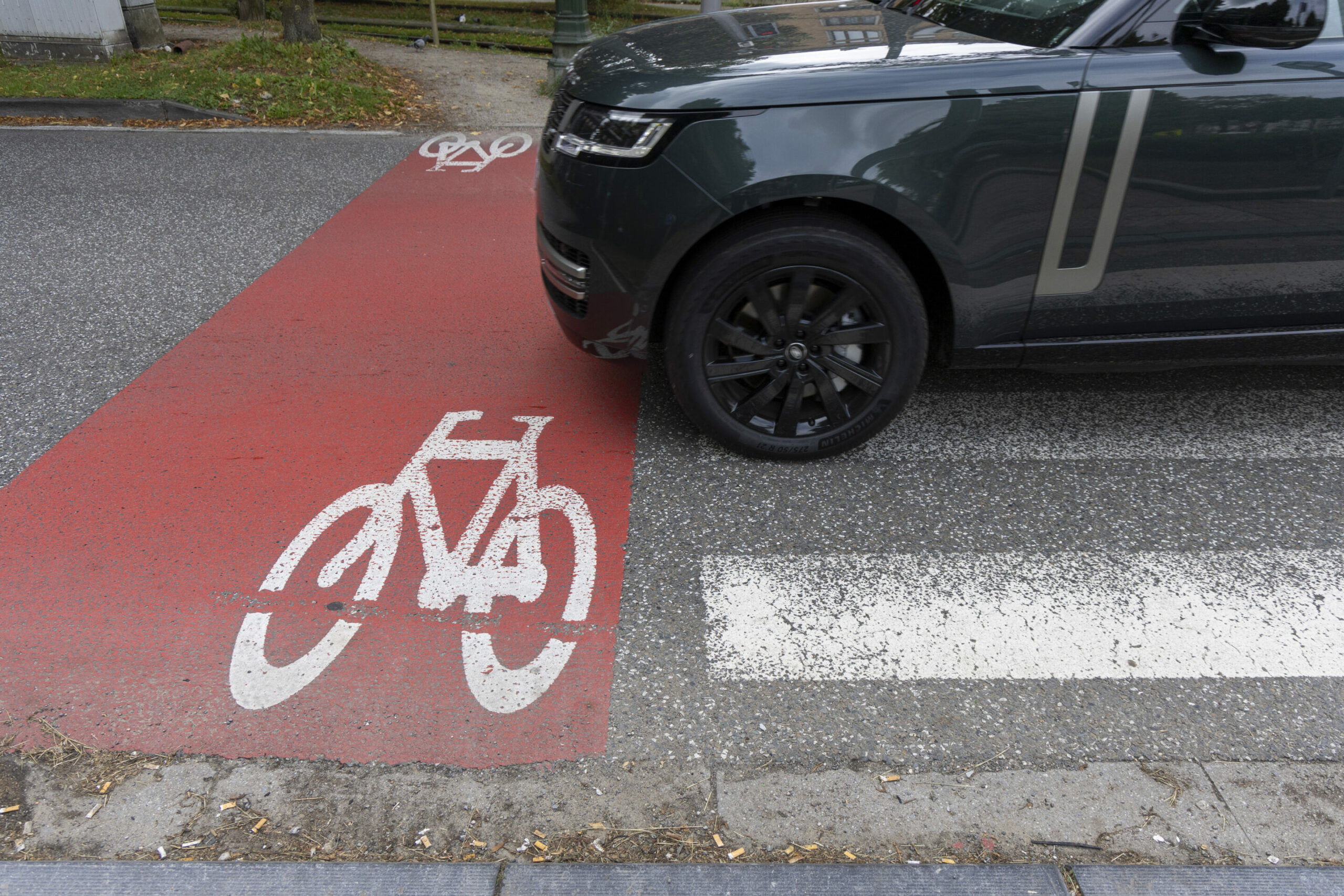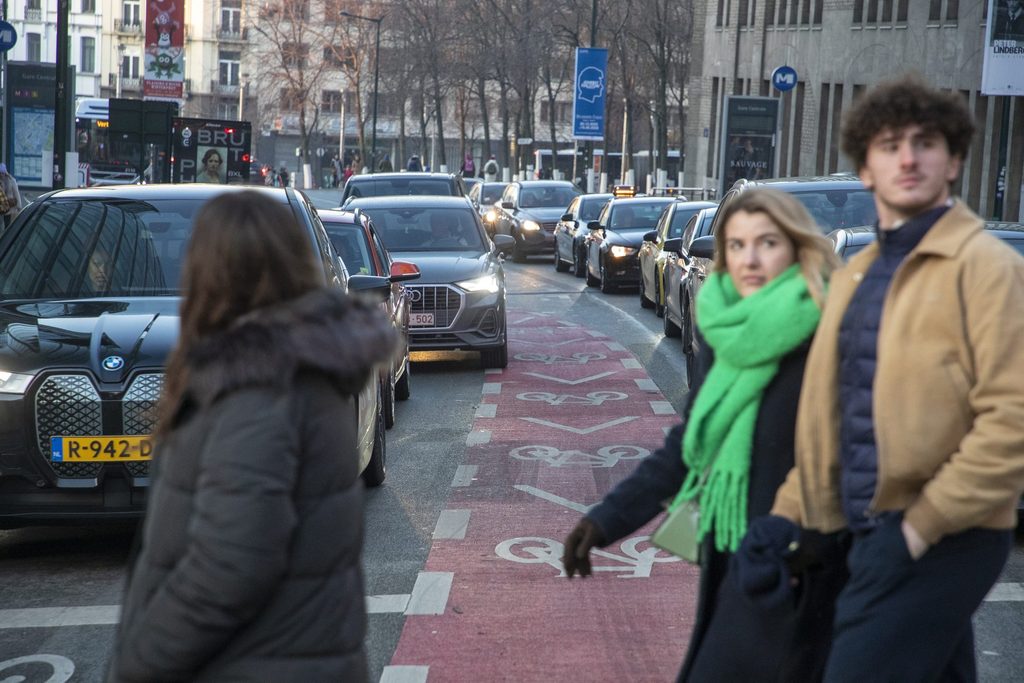Cars have become progressively heavier and bulkier in the past two decades. In Brussels the trend towards heavier cars is marked by a rise in sport utility vehicles (SUVs), which now account for half of new cars in the city. Moreover, they are detrimental to road safety, air quality, and the use of street space.
New cars in Europe are growing: becoming one centimetre wider every two years. This bulk is driven by the popularity of large SUVs, initially designed to navigate rugged terrains or to move heavy goods. Half of new cars registered in Brussels in 2023 were SUVs, a study by Brussels Mobility and Brussels Environment, seen by the Brussels Times, showed. On average these vehicles are 14% heavier than other vehicles.
A new private car in the capital weighed on average 1,463kg in 2023 – a 10% weight gain since 2013. For company cars the rise was even greater: on average these cars weigh 1,711kg (+17% since 2013).
The researchers pointed out that SUVs are popular partly because CO2 emission standards do not discourage heavier cars. Advertisements focus on more polluting, heavier and luxurious cars, and manufacturers are betting on more expensive cars, encouraged by Belgium's favourable tax regime for company cars. Recent "greening" of the car fleet has not helped matters, as electric cars are on average 570kg heavier than new petrol and diesel cars.
"This study shows how the increase in very large cars creates problems: in terms of road safety, affordability, air quality and distribution of public space," said outgoing Mobility Minister Elke Van den Brandt (Groen), who commissioned the study with outgoing Environment Minister Alain Maron (Ecolo).
Heavyweight killers
A heavier and bigger car fleet has several downsides but the risk to road safety is one of the most concerning. While occupants of such vehicles are better protected, other road users (such as pedestrians, cyclists, motorcyclists or occupants of smaller cars) are at a far greater chance of coming to serious harm.
Traffic institute Vias, which already advocated breaking the trend towards heavier vehicles last year, carried out an analysis of accidents between 2017 and 2021. This showed that for every additional 300kg a car weighs, the risk of fatal injury to vulnerable road users goes up 30% in a collision. A cyclist or pedestrian hit by an SUV has 90% more chance of injury and up to 200% more chance of being killed.
Larger cars also pollute more, researchers pointed out. "The heavier a vehicle, the more fine-dust emissions when driving," they note. CO2 emissions are also higher – not only when the vehicles are being driven but also in the production process. This obviously runs against efforts to reduce CO2 emissions.

A bicycle path and an SUV in Brussels. Credit: Belga/ Nicolas Maeterlinck
Added to this, SUVs unfairly dominate public space in Brussels. While car ownership per household in the region is dropping systematically, cars still take up significantly more public space.
"New vehicles are now wider than 180 cm on average, which means they no longer fit in the provided parking space. It also means they drive closer to cyclists," the researchers point out. The physical obstruction posed by cars – whether parked or on the move – limits the space available to active road users (cyclists and pedestrians), for recreation and for greening the city, to make the city more liveable.
Finally, the report highlights social inequality, as the trend towards bigger, heavier cars affects the affordability of second-hand vehicles. "This impacts lower-income families in need of a car, impeding their access to lighter, safer cars."
Unsuitable for Brussels
The study proposes ways to slow the proliferation of heavier vehicles and promote an evolution towards cars better suited to an urban context. Already a survey published earlier this year by the Group for Research and Action for Everyday Cyclists (GRACQ) indicated that half of respondents believe that vehicles in Brussels are too large and heavy. Two-thirds of residents think the regional government should take measures to limit this.
The study recommends imposing greater taxes on heavier vehicles. This extra tax could take the form of a smart kilometre charge, which has been on the table for several years. Other suggestions include a ‘zone without heavy cars’ or higher parking fees for bigger vehicles.
"It will be up to the future government to make choices in this regard," Van den Brandt said.

